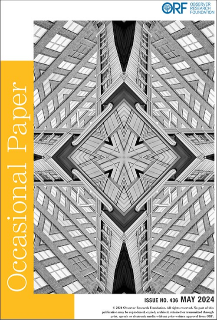Islamabad’s decision to ask its Foreign Secretary Jalil Abbas Jilani to meet separatist leaders of the Hurriyat Conference during his three-day stay for the foreign secretary level talks in New Delhi has upset all calculations and expectations of better bilateral ties between the two neighbours.
The two-day talks between Jilani and his Indian counterpart Ranjan Mathai are the precursor to talks between the Indo-Pak foreign ministers, which were earlier slated to be held in the latter half of this month but now have been postponed as the dates were clashing with the Indian presidential election due for July 19. The two foreign ministers are now likely to meet in Islamabad in August.
The revelations of LeT terrorist Zabiuddin Ansari alias Abu Jundal, who was arrested in Saudi Arabia and extradited to India, had already marred the atmosphere for any significant progress during the secretary-level talks. Jundal’s confession that he along with LeT founder Hafiz Saeed was in the control room in Karachi from where 26/11 terrorist attacks in Mumbai were conducted had clearly established the involvement of Pakistan’s military and ISI. India has handed over a set of documents, including the Pakistani passport and national identity card of Jundal issued by the Pakistani authorities in the name of Riyasat Ali, son of Mohammad Khushi, to the Pakistani delegation.
Pakistan foreign secretary’s meeting with the Hurriyat leaders was a direct affront to the Indian sensibilities. It was against the understanding between the two civilian governments evolved during meetings between Prime Minister Manmohan Singh and former Pakistan Prime Minister Yousuf Raza Gilani.
Pakistan watchers and analysts are of the view that the decision to meet Hurriyat leaders was aimed at countering Indian charges of Islamabad’s complicity in 26/11 attacks and to keep the Kashmir issue alive. It was also reflective of the prevailing domestic politics where a three-way battle for supremacy between the civilian government of President Asif Ali Zardari, the army and the judiciary has intensified in recent months.
The restoration of democracy and return of a civilian government in Islamabad in 2008 had created hope that democracy would take roots and the south Asian country would move on path of development and progress. But all those hopes have been belied.
The judiciary is breathing down the neck of the duly elected government, and the army is finding difficult to obey the orders of a civilian dispensation. Gilani was removed for failing to obey the Supreme Court order to probe the cases of money laundering of the President Zardari. The recently appointed Prime Minister Raja Pervaiz Ashraf is also under a serious threat. Not only has the Supreme Court asked his government to instruct legal authorities in Switzerland to reopen old cases of money laundering against Zardari, but a probe against the prime minister by the National Accountability Bureau for alleged cases of financial deals is also going on.
While the tussle between the civilian government and the Supreme Court, whose judges including the chief justice have been the appointees of different military, semi-democratic and democratic regimes, has weakened the system, the army has been playing all kind of games with the civilian government. The Pakistan Army is also in a lot of troubles as its grip over polity and society is loosening. Its double-crossing of the US government has been exposed in the case of Osama bin Laden who was killed by the US forces near Islamabad in his hideout.
The nexus between the Pakistan armed forces and the Taliban is well known and the US is aware of it. The Taliban has been carrying its anti-US attacks from FATA, the semi-autonomous seven districts and six smaller regions along Pakistan’s border with Afghanistan. US Secretary of State Hillary Clinton’s reluctant apology for the drone attack in which Pakistani soldiers were killed may have restored the supply routes to NATO forces in Afghanistan but the Western, particularly the US, suspicions of the Pakistan Army have grown so much that normalisation of relations with the super power would be difficult.
Thus, the absence of a clear centre of power in Pakistan raises a serious question mark on the ability of the government in Islamabad to execute any agreement in letter and spirit. In this background, all power wielding centres in Pakistan would have to realise, and possibly very fast, that it is going to be a very costly proposition to maintain traditional level of animosity with New Delhi and it would not only have to accept its hand in 26/11 attacks but would also have to hand over LeT chief Hafiz Saeed for trial in India. Without meeting this demand, Islamabad cannot hope to build a relationship with New Delhi that can effectively counter current challenges which pose existentialist threat to Pakistan.
(Dr Satish Misra is a Senior Fellow at Observer Research Foundation)
The views expressed above belong to the author(s). ORF research and analyses now available on Telegram! Click here to access our curated content — blogs, longforms and interviews.




 PREV
PREV

